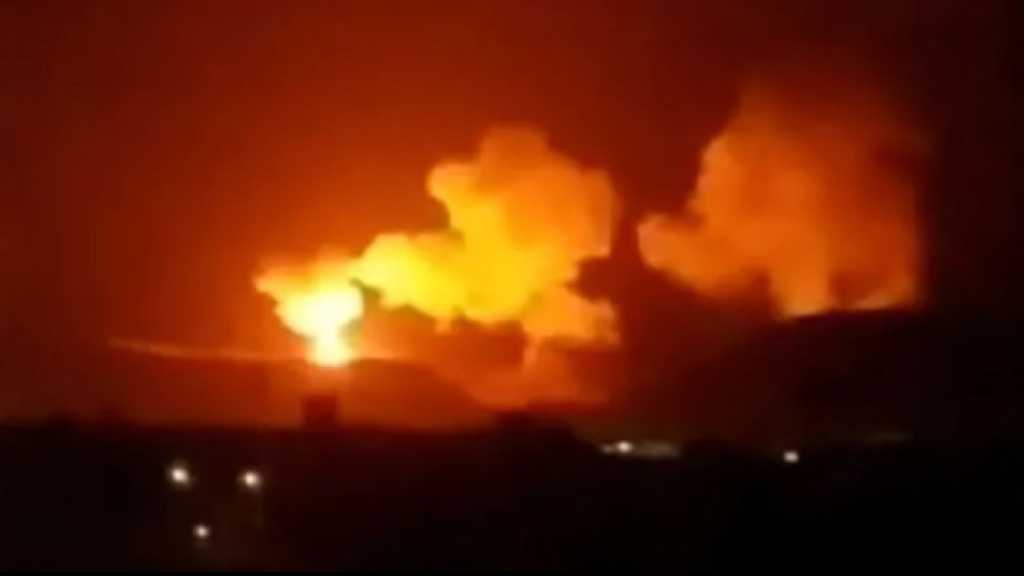Ansarullah: Yemen Ops. Testament to Rise of Resistance Axis

By Staff, Agencies
Yemen’s Ansarullah popular resistance movement says the country’s anti-“Israeli” operations serve as a testament to the unity of the regional Axis of Resistance in support of Palestine.
Ansarullah’s spokesman Mohammed Abdul Salam made the remarks to Lebanon’s al-Mayadeen television network on Thursday.
“The operation proved that there is a genuine Axis of Resistance that speaks and acts, a real Axis that rises and moves when necessary,” he said.
“The Yemeni operation has achieved an important goal by eliminating the abhorrent sectarianism,” he stated, adding, “The Yemeni stance came to embody the true meaning of prioritizing the Palestinian cause over our own difficult situation.”
Regional resistance groups hailing from Yemen, Lebanon and Iraq have been conducting numerous operations against the “Israeli” entity since October 7, when Tel Aviv launched a genocidal war against the Gaza Strip.
Yemen has expanded its operations to include targets associated with the entity by targeting ships that sail towards the ports that lie across the occupied Palestinian territories.
Sanaa has vowed to keep up the strikes as long as the entity sustained the war and a crippling siege that it has been simultaneously enforcing against Gaza.
“The Yemeni people have made a clear and explicit stance in support of Gaza, and the operation has achieved its objectives on all levels,” Abdul Salam said.
“The impactful operations demonstrate advanced technical and qualitative capabilities and significant military development,” he said.
“Drone manufacturing in Yemen has become very advanced, as well as ballistic missiles and technical, logistical, and intelligence capabilities.”
The Ansarullah official, meanwhile, pointed to the military operations that the United States and the UK have been conducting against Yemen as means of prompting it to stop its anti-“Israeli” operations.
“The American and British military operations came to protect ‘Israel’ and not to stabilize Yemen,” he said.
The spokesman, however, expressed certainty that the countries would fail in the same way that they failed to either prop up the “Israeli” entity in Gaza or help Saudi Arabia subdue Yemen during Riyadh’s years-long Western-backed invasion of the Arab Peninsula nation.
“The American and British enemies will fail as they did in Gaza, which is only a few square kilometers; thus, it is more likely they will fail in Yemen,” Abdul Salam noted.
“The American and British operations failed just like the operations that took place in Yemen over the past nine years,” he added.
“Yemen's capabilities have become clear, and Western generals talk about the terror they felt while at sea.”
Elsewhere in his remarks, the Yemeni official said the United States has been relaying messages to the country, alleging that Washington sought to avoid expansion of the conflict or the Yemeni support for Gaza.
“The response from the leader was that if they are keen on not expanding the conflict, they should stop the Zionist arrogance,” Abdul-Salam said, referring to Ansarullah leader Abdul Malik Al-Houthi.
Sana’a’s support for Gaza, the spokesman said, rather hinged on “whatever the brothers in Palestine and resistance leaders decide regarding any agreement or suspension or truce of military operations.” “Yemen will comply,” he added.
Amid his remarks, Abdul Salam warned Saudi Arabia against re-escalating its attacks on Yemen or re-launching a siege that the kingdom used to be employing against the country, speculating that Riyadh could do so as means of “serving ‘Israel’”.
“We hope that the Saudis do not slip again into implementing economic measures or punishments against the Yemeni people in service of 'Israel',” the spokesman noted.
Comments




